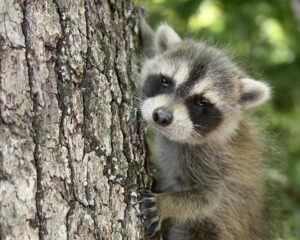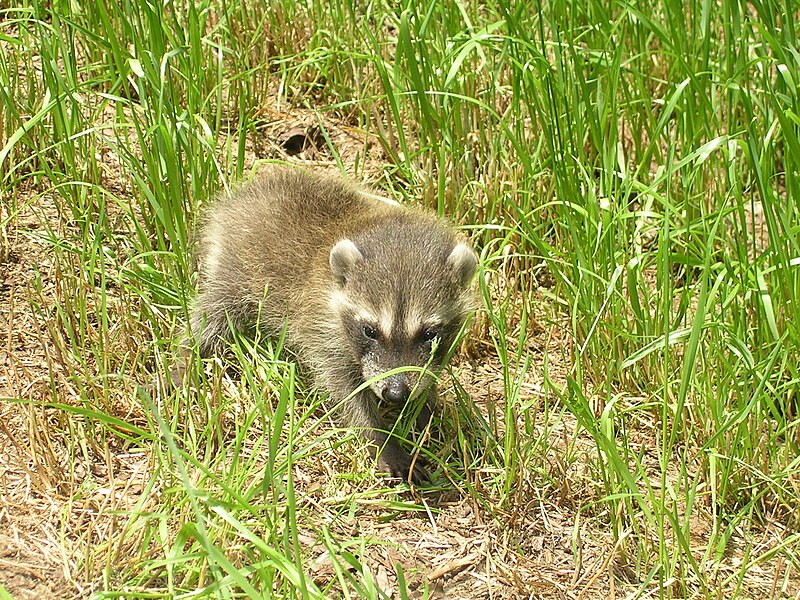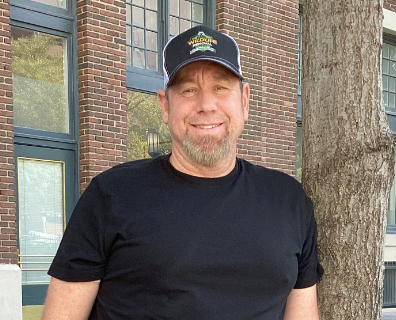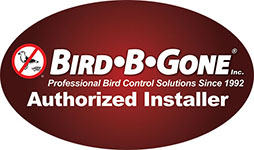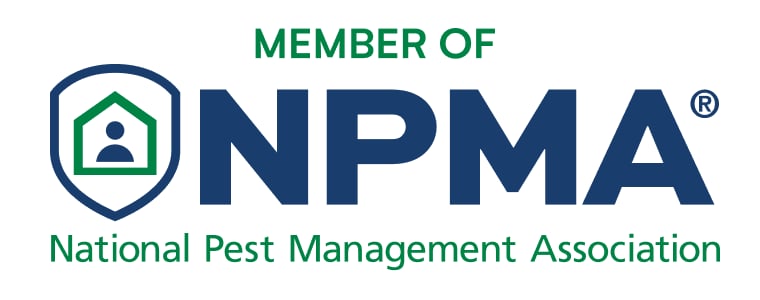“There are many reasons why you’ll find baby raccoons alone, the mother may have been trapped, removed, or killed, the mother may have found a new den and aren’t able to carry her kits all at once, or the little one may have set out on its own. sometimes babies get trapped in the nest and the mother is unable to get to them. or the family pet may have brought the baby raccoon home.“
At AAAC Wildlife Removal Dallas, we’re not only dedicated to serving our local communities but also recognize the unique beauty and attractions that make Dallas special. Whether you’re near iconic spots like the Dallas Museum of Art, Reunion Tower, or the Dallas World Aquarium, we’re ready to provide expert raccoon removal services.
From homes near Klyde Warren Park and White Rock Lake Park to businesses around the Perot Museum of Nature and Science and the Bishop Arts District, our team is here to help. We also extend our services to areas near historic landmarks like Dealey Plaza and the Sixth Floor Museum, ensuring that wherever you are in Dallas, you can count on us.
Are Baby Raccoons Dangerous?
When you find a baby raccoon, your first instinct might be to determine whether it is dangerous or not. The truth of the matter though is that these baby raccoons are wild animals and even as babies they can be potentially harmful.
These little guys don’t yet have the capability to bite and scratch but their mom definitely can. Mother raccoons will not hesitate to attack to protect their kits. So before picking up the cute furry critter, make sure to look around for their mom! Additionally, wild animals, particularly raccoons are known to spread harmful parasites and diseases that can be contracted by pets and humans. So take extra caution when you decide to rescue baby raccoons.
It is also known that raccoons can spread rabies, and there have been incidents when rabies was transmitted through the handling of an infected kit.
What To Do if You Find Baby Raccoons?
An orphaned baby raccoon is not what you want to find during your walk. However, If this has happened, it is important that you know what to do to these baby animals.
When we see a baby raccoon alone, the first thing many of us think is that it must be orphaned and in need of help. This may not always be true though! It could just be wandering while its mother sleeps or gathers food for her babies – so now’s your chance to make sure this little one has found its way back home before you try anything else.
Tip #1: Make Sure the Baby Raccoon is Really Orphaned
Raccoons are known for being very protective of their young and mother raccoons don’t wander far from them. That’s why it could be worth leaving a found baby alone with momma in the vicinity to see if she will return.
So, before you do anything else, it is important to make sure that the raccoon is really orphaned. You might want to check the surroundings to see if you can find any dead mother raccoons.
It’s not always easy knowing if raccoons are orphaned, but there are telltale signs. Mother raccoons don’t usually move their young around in the open and may sometimes leave them to go gather food or look for a new den. If it seems that there is no mommy nearby-and you’re sure of this-do your best with what resources are available to find someone who knows how to handle wild animals safely before moving forward trying on your own!
The following are telltale signs that the baby raccoon is orphaned:
- The kit appear to be injured and you can see wounds or blood on its body.
- You see the dead mother raccoon nearby.
- You can see lots of insects or parasites crawling over it.
- It has been crying and wandering for over 24 hours.
Tip #2: Do not feed the baby raccoon
When you find a baby raccoon, it is very important that they are not given any food. Baby raccoons can live a long time without sustenance but giving them the wrong type of food could be fatal. For example, cow’s milk is something their stomachs won’t be able to digest or absorb.
Tip #3: Warm the Baby Raccoon
If you see an abandoned baby raccoon it is vital that they are kept warm. The body temperature of a raccoon is normally between 101 and 103F (38 to 39 degrees Celsius), however, babies do tend to have a little lower temperature than this due to their lack of hair. Placing the baby raccoon in a cardboard box with a towel or blanket and use a heating pad set or a water bottle filled with warm water to keep the box warm. Ensure the temperature is just right and that the temperature change isn’t abrupt.
Tip #4: Check if its injured
After making sure the baby raccoon is warm, you’ll want to check for any injuries. Check for any blood, abrasions, or broken limbs. Lots of parasites like fleas, ticks, or fly eggs on the baby raccoon is an indication that the mother raccoon may have been gone for days. If the baby raccoon has no injuries, it could be a good sign that it was just trying to explore and may have found its way back home or another den site where the mother has moved them. However, if the baby does appear injured-or what you feel like there might be an injury – you’ll want to find a professional who has experience handling wild animals.
Tip #5: Attempt to Reunite it with their mother
Being in its mother’s care is still the best for the baby raccoon, reuniting it with its mother should be your priority. To do this, place the cardboard box containing the raccoon babies where you initially found them. Leave them overnight to see if the mother comes back for it. Make sure to keep the baby warm and refresh the heating pad if necessary.
If after leaving them in the cardboard box overnight and the mother raccoon hasn’t come to take her babies then it is likely that something happens to the mother and the babies are really orphaned. If this is the case then the next step would be to bring the baby raccoon to a local wildlife rehabilitation center.
Tip #6: Bring them to a local wildlife rehabilitator
If reuniting it with the mother raccoon isn’t possible then the local wildlife rehabilitation center should be seen as the ultimate solution for orphaned raccoons. When bringing orphaned baby raccoons to the local wildlife rehab center make sure the box is heated and that it is securely closed.
Wildlife rehabilitation centers are the best place to bring these baby raccoons because they will be nurtured and cared for by experienced professionals who know what kind of care orphaned raccoon babies need, can give them medical attention when needed, offer a permanent home in their sanctuary, or release back into nature if possible. The center will take care of the baby raccoon until they’re old enough and healthy enough for release back into the wild. If you come across a lost or abandoned raccoon, don’t panic; follow the steps above before doing anything else!
Trapping and Removing Raccoons From Attics
When trapping and removing raccoons from homes, it is important to take the baby raccoons along with their mother. These animals will not survive without a parent and will likely starve to death and become an entirely different type of problem. Getting a professional wildlife removal service like us is a great idea if you suspect a raccoon has young in your attic. We’ll remove your pests without causing harm to the animal and its babies.
How long can a baby raccoon survive without its mother?
Baby raccoons can only survive for a few days without their mothers, but the longer they are separated by their mothers, the greater the chance that they will die of hypothermia, starvation, or being eaten by predators. The best thing to do when you come across an abandoned or lost baby raccoon is to find professional help as soon as possible
FAQs
Can you take care of baby Raccoons yourself?
This is not a good idea. Raccoon babies are very difficult to take care of and I would not recommend trying it by yourself. They should be taken to wildlife rehabilitation centers that can help them better than anybody else could!
Should you make the baby raccoon a pet?
No. Having a raccoon as a pet might sound pretty cool but in truth, it is irresponsible and potentially dangerous. This is beside the fact that in Texas, possession or keeping wildlife as a pet is illegal. Raccoons are wild animals with unpredictable behavior. They cannot be domesticated or tamed like other common pets.
Can baby raccoons survive without their mother?
Baby raccoons less than one year old simply cannot survive without their mother raccoon because they instinctively rely on her for warmth, nutrition, and protection from predators which are all crucial aspects of survival that the babies do not yet possess. This is another reason why you should hire a wildlife control service that knows Raccoon. At AAAC Wildlife Removal, we have what it takes to remove raccoons from your property.
What should you do if the mother raccoon is dead?
The best thing that you can do for an orphaned baby raccoon is to find professional help. This is what the wildlife rehabilitation center does best!

